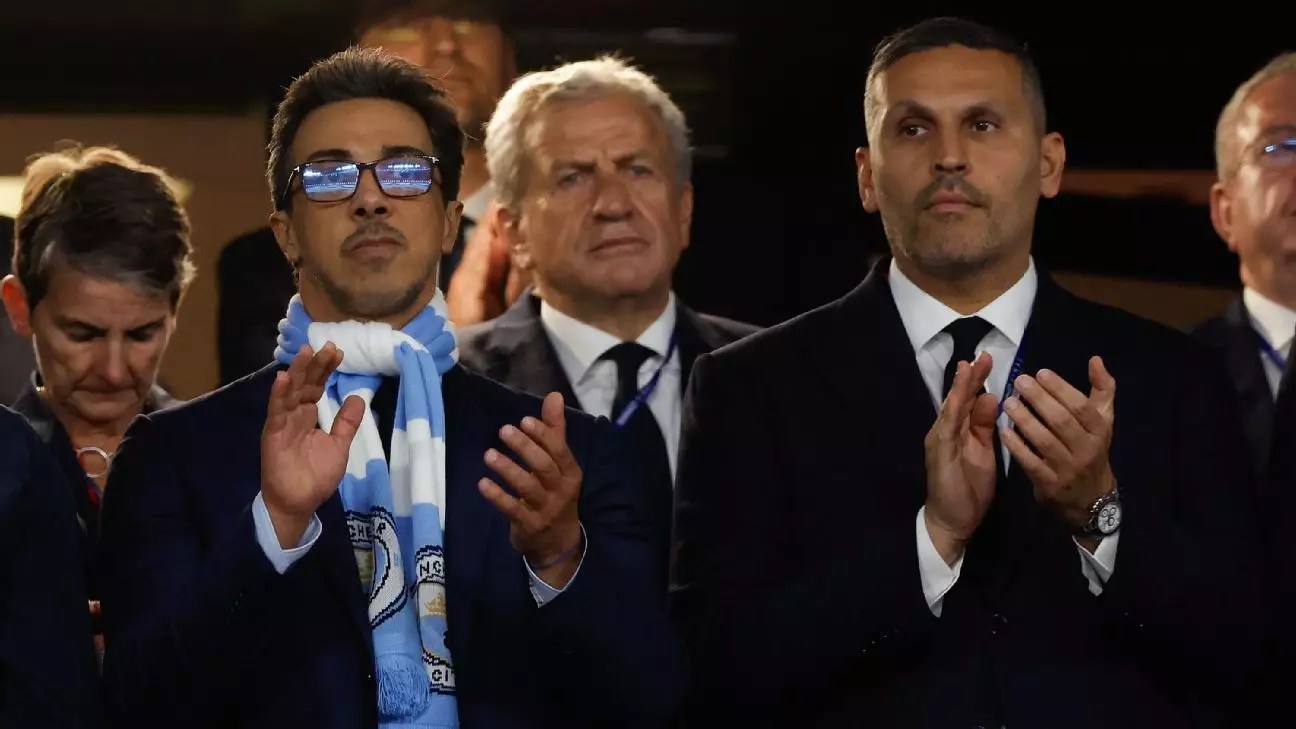The ramifications for Manchester City and the Premier League are reaching unprecedented heights as the club confronts a significant legal battle over 115 charges related to alleged financial misconduct. This hearing marks a crucial junction for both the reigning champions and the integrity of the league itself. Commencing on September 16, this case could lead to severe penalties for City, who stoutly refute all allegations against them. Beyond the immediate implications, the potential fallout could tarnish years of success, as the team has secured 21 major trophies since its acquisition by Sheikh Mansour bin Zayed al Nahyan in 2008—a stark contrast to the mere nine titles won over 128 years prior to his ownership.
The sanctions on the table are significant, including the possibility of hefty fines, substantial point deductions, or even expulsion from the league if found guilty of repeated violations. For City, this moment could redefine the club’s legacy and fundamentally alter the competitive landscape of English football.
Guardiola’s Confidence
Amidst the tumult, Manchester City’s manager Pep Guardiola has maintained a calm demeanor, expressing relief that the complex saga is about to reach a conclusion. He noted the process will finally shift to an independent three-member panel of legal experts who will weigh the facts and render a verdict. Guardiola’s steadfast defense of the club’s honor has been consistent, and his anticipation for a resolution reflects the overarching sentiment within the organization. “Justice is there in a modern democracy,” he asserted, signaling confidence in the integrity of the panel and the legal proceedings.
Guardiola’s words resonate particularly as City has weathered storms in the past, famously overturning a two-year UEFA Champions League ban in 2020 due to similar financial irregularities. Nevertheless, the looming charges from the Premier League cast a long shadow over the club’s achievements, putting Guardiola’s continued tenure and the futures of star players in jeopardy.
These charges are rooted in a trove of revealing emails published by Football Leaks and reported by the German magazine Der Spiegel in 2018. The leaked correspondence allegedly highlights attempts by senior club executives to conceal the true extent of sponsorship revenues, raising concerns around financial transparency. Unlike UEFA, which is bound by a five-year statute of limitations that allowed City to navigate one legal fraught successfully, the Premier League has no such constraint. This discrepancy enables the league to pursue a more thorough investigation, and the resulting charges span from 2009 to 2018—years marked by City’s ascendancy in English football.
The specific allegations paint a comprehensive picture, detailing failures to provide accurate financial data across various categories, including player payments and compliance with Financial Fair Play regulations. With such a wide-ranging array of breaches cited, the league’s scrutiny reflects broader concerns about financial accountability in football.
The implications of this hearing extend beyond Manchester City alone; they threaten the reputation and operational integrity of the Premier League. League CEO Richard Masters has emphasized the importance of upholding regulations, noting that maintaining a robust set of rules is fundamental to any competition. The public has increasingly called for accountability in modern football, conveying a desire for transparent governance and fairness.
As the hearing unfolds in secrecy, the anxiety surrounding potential outcomes looms large. Both City and the Premier League have enlisted prominent legal figures in anticipation of a lengthy and potentially tumultuous process. Lord David Pannick, representing City, is noted for his high fee—evoking comparisons to top players due to his specialized expertise in complex legal matters. This trial is expected to last upwards of ten weeks, during which the narrative of City’s triumphs could either receive vindication or face harrowing consequences.
Ultimately, the outcome of this case is uncertain, especially as both City and the Premier League will retain the right to appeal. Unlike the CAS oversight seen previously, the parameters of this current situation assert no clear path for external arbitration. The expected timeline designated by the league indicates that the entire process should culminate before the end of the 2024-25 season, although immediate repercussions may surface sooner.
The stakes couldn’t be higher, as millions of fans and stakeholders await a resolution that will determine not only Manchester City’s fate but its role in a league long regarded as one of the most competitive in the world. Whether City emerges exonerated or faced with daunting penalties, one truth remains: the proceedings will serve as a bellwether for accountability in football, setting a precedent for how clubs manage their financial frameworks moving forward. The clock is ticking, and the endgame has officially begun.


Leave a Reply